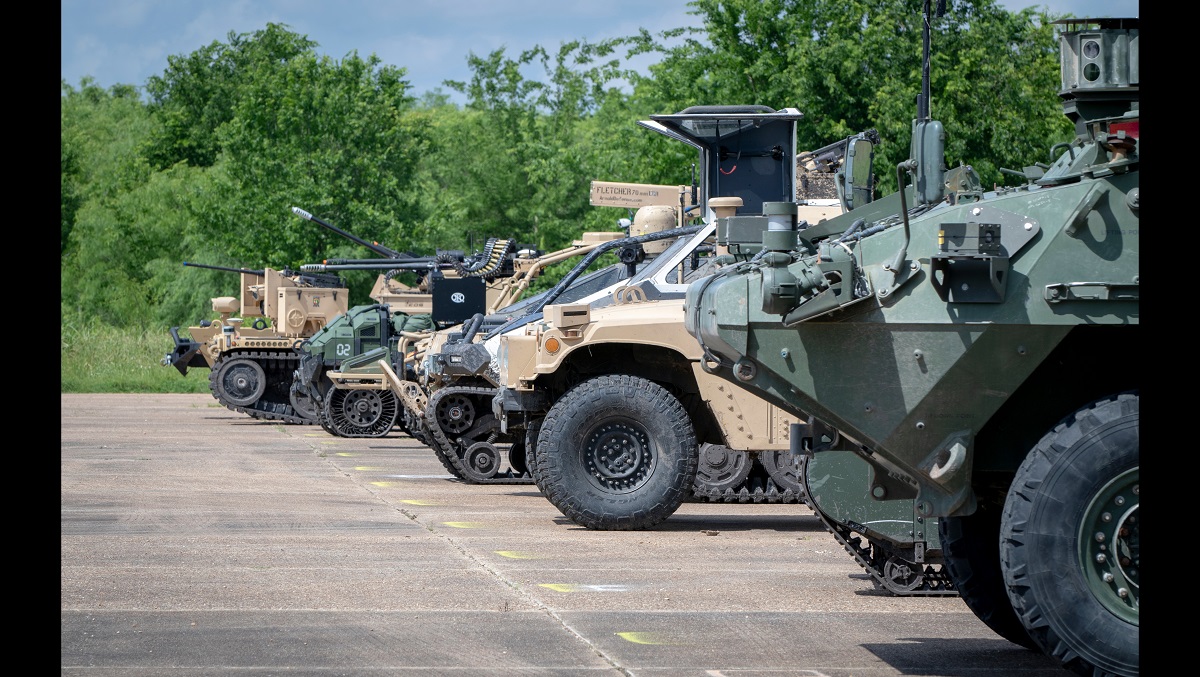
What happens when you get three old experienced soldiers together to discuss something they’ve worked on for much of their careers? Well, the first thing that happens is that they “go secure” and start speaking in acronyms. More importantly, you get an enthusiastic conversation about transforming the Army to support soldiers now and well into the future. LTG Ross Coffman is in the virtual studio with hosts Lou Yuengert and Bob Bradford, and as the Deputy Commanding General of Futures Command, he’s got a front-row seat to some of the Army’s biggest innovation efforts across the force.
Industry and academia always want to know, ‘What is the Army working on? How can we help?’ and we have to get that communication out there so that we can clearly define what the Army is trying to accomplish so both academia and industry can help in the test community.
Podcast: Download
Subscribe: Apple Podcasts | Spotify | Amazon Music | Android | Pandora | iHeartRadio | Blubrry | Podchaser | Podcast Index | TuneIn | Deezer | Youtube Music | RSS | Subscribe to A Better Peace: The War Room Podcast
Ross Coffman is a lieutenant general in the U.S. Army and the Deputy Commanding General of Army Futures Command. He joined the Army in 1989 as an Armor officer and has supported and led Army efforts in Bosnia, Germany, Haiti, Iraq and the United States. LTG Coffman most recently served as the Deputy Commanding General for Maneuver in the 1st Infantry Division with duty in Eastern Europe and the Director of the Next Generation Combat Vehicles Cross-Functional Team. His civilian education includes a bachelor’s degree from Centre College, an MBA from Embry Riddle University, and a Graduate Fellowship at Harvard’s Kennedy School of Government.
Louis Yuengert is the Professor of Defense Leadership and Enterprise Management in the Department of Command, Leadership, and Management at the U.S. Army War College. He is a former course director for the Defense Management core course and he teaches with the Carlisle Scholars Program, a special program.
Bob Bradford is the Associate Professor of Defense and Joint Processes and Henry Stimson Chair of Military Studies at the U.S. Army War College and is in his seventh year on the Carlisle faculty. Bob served 30 years as an officer in the U.S. Army, the last 20 as an operations research analyst supporting enterprise decisions.
The views expressed in this presentation are those of the speakers and do not necessarily reflect those of the U.S. Army War College, U.S. Army, or Department of Defense.
Photo Description: Army Futures Command held demonstrations of technology and equipment on May 16, 2019, at the Texas A&M University System’s RELLIS Campus in Bryan, Texas. Six weapons and defense industry vendors showcased seven autonomous combat vehicles in an effort for Army officials to decide which machines fit their needs best and what needs to be improved on.
Photo Credit: U.S. Army Photo by Mr. Luke J. Allen





Re: “the people” part of “what is the Army working on,” our enemies (those both here at home and there abroad), these folks seem to have developed approaches/methods by which they have been able to successful provide that the number of volunteers that we need — today and going forward — these are not now — and potentially will not be in the future — be available.
(This must be viewed as an amazing strategic success of [a] our both at home and abroad enemies’ and [b] their efforts to limit, contain and roll back the power, influence, control and capabilities of the U.S./the West today and going forward. Yes?)
From this such perspective (our lack of sufficient volunteer personnel today — and potentially going forward — this is/will be due, in no small part, to our both at home and abroad enemies’ efforts to limit, contain and roll back the power, influence, control and capabilities of the U.S./the West), what is Futures Command working on; this, as to an enduring “fix” for this such — “people” — problem?
Note that, from the perspective that I provide above (lack of sufficient volunteer personnel today and going forward; this, due in no small part to our both at home and abroad enemies’ efforts to limit, contain and roll back the power, influence, control and capabilities of the U.S./the West);
Note that, from that such perspective, if you do not first solve this such “people” problem, then:
a. Your efforts — and your successes — made in areas such as Long-Range Precision Fires, Next-Generation Combat Vehicles, Future Vertical Lift, the Network to include Precision Navigation and Timing, Air-and-Missile Defense, Soldier Lethality, etc., these:
b. Would seem to have been wasted/would seem to little and/or no use or utility — as you would no longer have the people needed to “man” these such capabilities.
(Or are Future Command’s efforts re: long-range precisions, next-generation combat vehicles, etc., [a] designed specifically with this such lack of personnel in mind and/or [b] specifically as a means/a method of accommodating same?)
Question — related to my thoughts above:
Future Command’s efforts regarding such things as Long-Range Precision Fires, Next-Generation Combat Vehicles, Future Vertical Lift, the Network to include Precision Navigation and Timing, Air-and-Missile Defense, Soldier Lethality, etc.; these seem to have been undertaken with the understanding that the U.S. wished to retain its powerful position in world affairs — today and going forward.
But if significant numbers of Americans (like significant numbers of our foreign opponents) wish to see the U.S — today and going forward — WITHDRAWING significantly from world affairs, then are Future Command’s such efforts now to be seen as being outdated/as being based on what might be seen as a contested and/or obsolete premise?
“The GOP is becoming an isolationist party. It is no longer the party that embraces the bold foreign policy of Ronald Reagan or the Bushes. By more than two to one, Republicans endorse the view that ‘We should pay less attention to problems overseas and concentrate on problems here at home.’ Only 30 percent of Republicans believe ‘It is best for the future of our country to be active in world affairs.’ ” (See “The Hill” article “Republicans are the new isolationists; will US retreat from world stage?,” by Bill Schneider.)
Re: my comments above, our new “Joint Concept for Competing;” this document seems to have been developed — at least in part it would seem — to address matters like those those I describe above; wherein, our opponents are able to “win without fighting.”
Question — Based on this such observation:
Given that the new “Joint Concept for Competing” suggests that challenges of this type are likely to be the manner in which our opponents “win” — now and in the future — then has not Futures Command — and industry and academia in support of same — been challenged, tasked, manned, equipped, etc., to work on these — arguably our most compelling problems?
(And if not, why not?)
very disappointing podcast. Another Army General who understands training and not education. Not a particularly strategic or future-oriented leader.
Bob, Lou, Ross – thanks for taking this on! Learning a lot from all three of you. Appreciate you doing this – Mike Marra